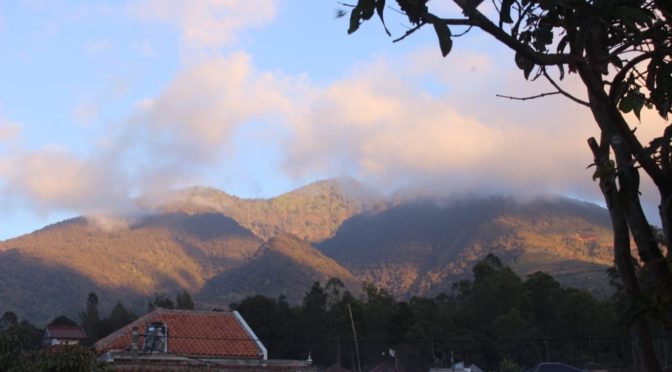World Environment Day is bound to mean many different things to different people. Whether you’re a fisherman in Indonesia who, every year, is seeing an increasing amount of ocean litter or an office worker in London facing hotter summers and increasing levels of pollution, we are all feeling the not-so gradual transformation of the environment. But how we are affected by these changes is by no means equal. We may all know about the stratospheric environmental changes that are afoot, but how they affect us varies enormously depending on just a few factors; race, gender, class and where you live.
Intersectionality is the term used when describing how factors coincide when discussing barriers to equality. Originally coined by black, feminist academic, Dr Kimberlé Crenshaw, to describe the crossover of discriminations encountered when you are both black and a woman, it became clear to many that this term had wide-reaching applications. Now used as a mainstream term to define complex networks of intersecting discriminations, environmentalists are waking up to the fact that protecting the environment is not free of these crossroads. Race, gender, class and where you live all come into play when discussing our role in protecting the environment and, perhaps more alarmingly, how environmental change will affect us in the long-run.
Take plastic pollution. Reducing our plastic consumption is a necessary action if we are to reduce the impact litter has on the environment. But is this easier said than done? In the minds of many Brits, perhaps not. We can buy our chickpeas in bulk, take our own organic cotton bags to the shop and avoid plastic water bottles, no questions asked. But let’s take a look at rural Java. Although fresh produce is easy to get hold of with not a sheet of cellophane in sight, plastic cartons of water are commonplace. In many areas of the world, clean tap water is not an option, rendering these environmentalist-nightmares a necessary evil. Expecting people to reduce their plastic consumption when it provides such necessary services in countries such as Indonesia is practically impossible.
Now, let’s look at how plastic pollution will affect us in the long-run. There is every likelihood that the average Brit will be able to move through life without being negatively impacted by our soaring plastic usage. Yet it is poorer countries such as Vietnam, Indonesia and Somalia who, through no fault of their own, will bear the brunt of this crisis. The deep-sea ocean currents that made their seas so high in nutrients and, in turn, perfect for their enormous fishing industries are the same currents that are pushing all of this plastic onto their beaches and into their towns.
These issues and their interactions with environmental justice exist not only between countries, but within them also. It is stating the obvious to say that social and economic deprivation is present even in the wealthiest of countries, often disproportionately affecting black and indigenous people of colour. As “doing the right thing” often comes with a hiked-up price tag, being environmentally-friendly is rarely affordable for those at the bottom of the economic ladder. Again, the very same people who will suffer most at the hands of environmental change.
Intersectionality in relation to environmental change is incredibly complex. But the very nature of conservation is to learn, adapt and blaze the trail. If conservation is to really bring about the positive changes we all want and need to see, then we must look back before we can look forward. Without question a modern force for good, it can be argued that conservation didn’t start like this; how ethical were the early methods of conservation? What about its colonial roots? Accepting, understanding and growing from our past will without doubt make for better futures. On World Environment Day, and with the largest civil rights movement the world has ever seen currently underway, now is the time to reflect and focus on the complexities of intersectionality and its implications for conservation. Let us not look back in 50 years and regret not seeing what was right in front of us; that there can be no environmental justice without social justice.

